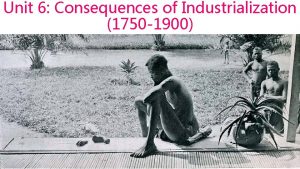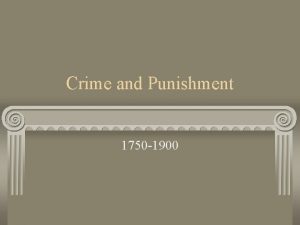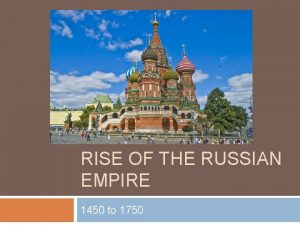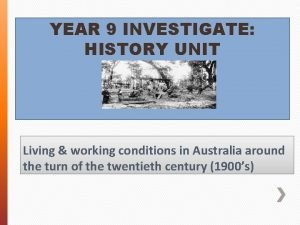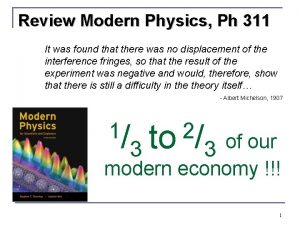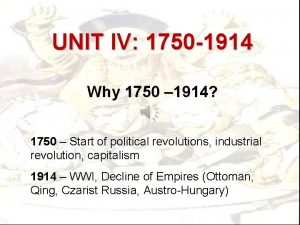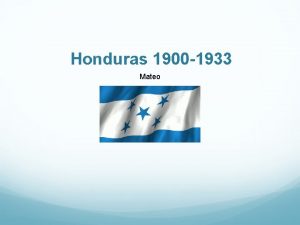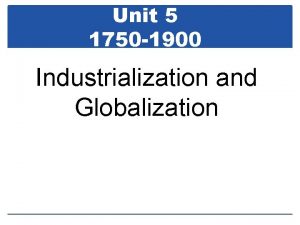Unit 5 and 6 Review Modern 1750 1900










- Slides: 10

Unit 5 and 6 Review Modern 1750 -1900 and Contemporary 1900 - Present

5. Modern 1750 -1900



6. Contemporary 1900 - Present



SAQ Use the excerpt below and your knowledge of world history to answer all parts of the question that follows. “We are, moreover, neither Indian nor European, but a species midway between the legitimate proprietors of this country and the Spanish usurpers. In short, though Americans by birth we derive our rights from Europe, and we have to assert these rights against the rights of the natives, and at the same time we must defend ourselves against the invaders. This places us in a most extraordinary and involved situation… The role of the inhabitants of the American hemisphere has for centuries been purely passive. Politically they were nonexistent. We are still in a position lower than slavery, and therefore it is more difficult for us to rise to the enjoyment of freedom… We have been harassed by a conduct which has not only deprived us of our rights but has kept us in a sort of permanent infancy with regard to public affairs. ” The Jamaica Letter, Simón Bolívar, 1815 1. Answer parts a, b, and c. a) Identify and explain ONE example of how Bolívar’s Jamaica Letter represented Enlightenment ideals. a) Identify and explain ONE issue seen in the Jamaica Letter that caused the Latin American Revolutions. a) Identify and explain an ADDITIONAL cause of the Latin American Revolutions.

Mind Map

Muhammed Ali Berlin Conference Raj Abolitionist Otto von Bismarck Simon Bolivar Australia Conservative Liberal Radical Steam engine French Revolution American Revolution Haitian Revolution Latin American Revolution Napoleon Jose de San Martin Reign of Terror Nationalism Bourgeoisie Tropical dependency Isolationist Daimyo Scramble for Africa Sepoy Cecil Rhodes Suez Canal Imperialism Caudillos Monroe Doctrine Spanish American War Industrial Revolution Interchangeable parts Laissez-faire Karl Marx Adam Smith Proletariat Socialism James Watt Boxer rebellion Catherine the Great Duma Meiji Opium Wars Matthew Perry Green Revolution Petroleum Nuclear power Ottoman collapse Russian collapse Qing collapse Holocaust World War II Total war Fascism Nationalism Deng Xiaoping Ronald Reagan Mohandas Gandhi Margaret Thatcher Ho Chi Minh Tiananmen Square Apartheid Kwame Nkrumah Communism Great Depression Cold War United States Soviet Union NATO Capitalism Warsaw Pact Proxy Wars Non-Aligned Movement Communist China Free-market economy Nelson Mandela
 Unit 6: global migrations of 1750-1900
Unit 6: global migrations of 1750-1900 Crime and punishment 1750 to 1900
Crime and punishment 1750 to 1900 1750-1900 portfolio map
1750-1900 portfolio map Ottoman empire 1750-1900
Ottoman empire 1750-1900 Unit 6 review questions
Unit 6 review questions Unit test unit test review algebra 2
Unit test unit test review algebra 2 Russian empire expansion 1450 to 1750
Russian empire expansion 1450 to 1750 Living and working conditions in australia 1900
Living and working conditions in australia 1900 Review of modern physics
Review of modern physics Modern chemistry chapter 9 stoichiometry test b answers
Modern chemistry chapter 9 stoichiometry test b answers Modern chemistry chapter 7 test answer key
Modern chemistry chapter 7 test answer key
